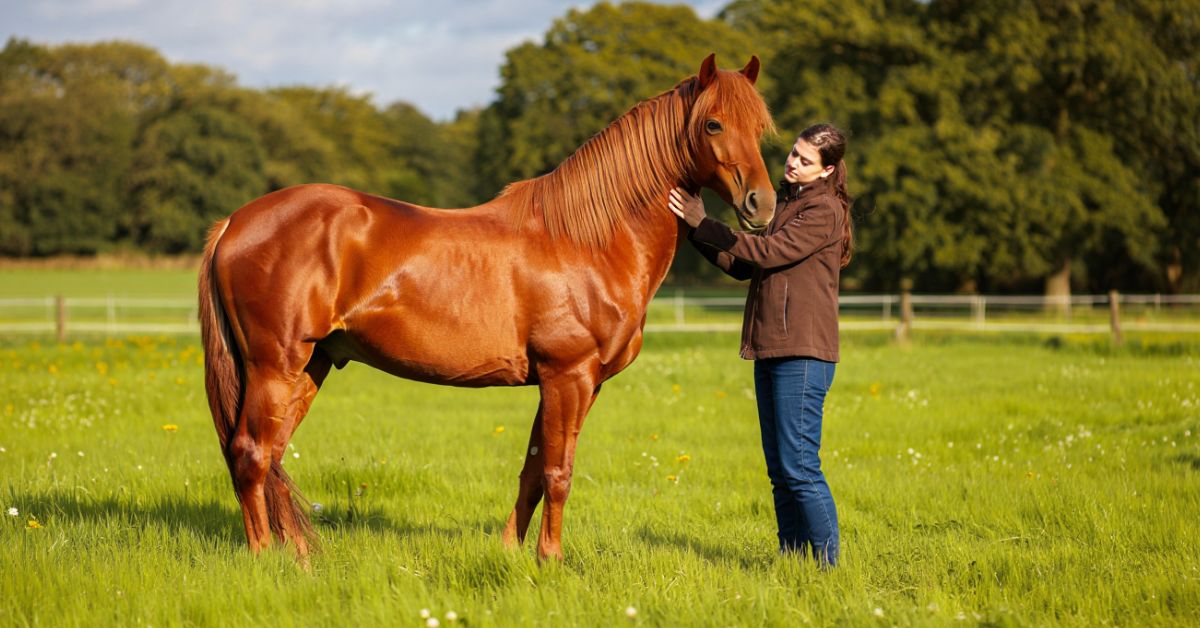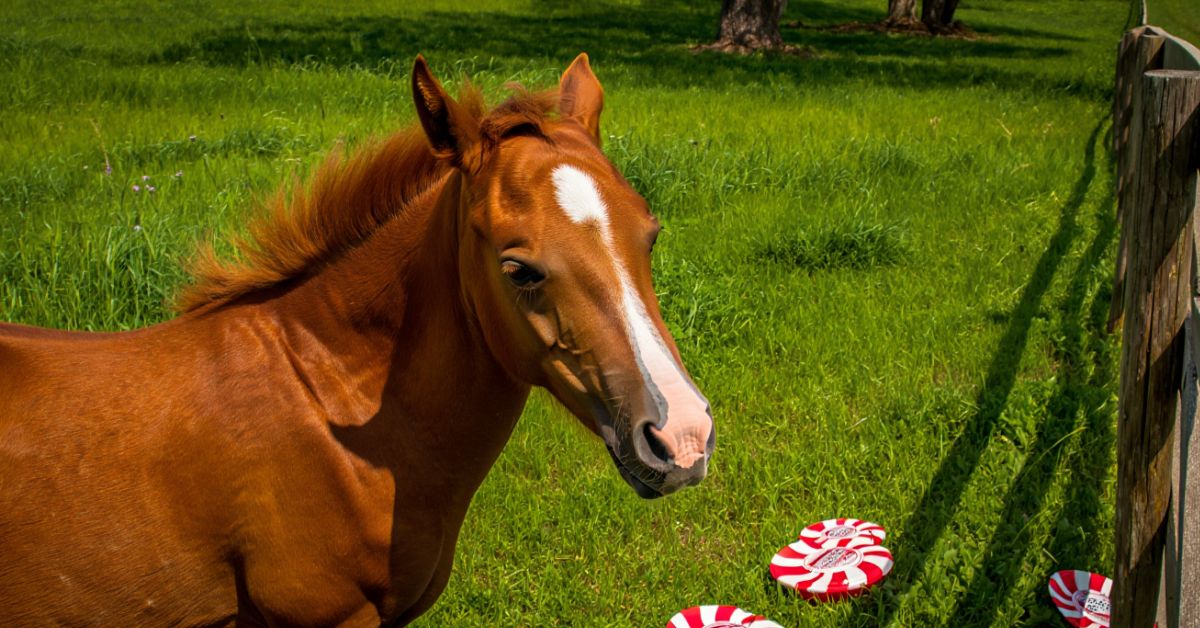
How Much Does It Cost to Lease a Horse? Complete 2025 Guide for Beginners
How much is it to lease a horse? This is one of the most common questions among aspiring equestrians who dream of having their own four-legged companion without the full commitment of ownership. The average horse lease cost per month ranges from $200 for a basic partial lease to over $1,000 for a full lease on a high-level show horse. Whether you're considering leasing a horse for beginners or looking into cost of half leasing a horse options, understanding the financial commitment is crucial before signing any horse lease agreement. From on-site horse lease arrangements to specialized dressage horse lease price considerations, the costs vary dramatically based on the horse's training level, your riding goals, and the specific terms of your lease. This comprehensive guide will break down every aspect of horse lease cost to help you make an informed decision and find affordable horse lease options that fit your budget and riding aspirations. 🐴
Understanding Different Types of Horse Leases and Their Costs
When exploring how much to lease a horse, it's essential to understand that not all leases are created equal. The horse lease fees you'll encounter depend heavily on the type of arrangement you choose, and each comes with its own set of financial considerations.
Full Lease vs. Partial Lease: The Cost Difference
A full lease horse price typically ranges from $500 to $1,200 per month, depending on the horse's quality, training, and location. With a full lease, you're essentially acting as the horse's owner for the duration of the contract, which means you have exclusive access but also bear most of the expenses. Think of it like renting an entire apartment versus sharing one with roommates – you get privacy and control, but you pay the full rent.
On the other hand, the cost of half leasing a horse or partial lease cost is significantly more budget-friendly, usually falling between $200 and $600 monthly. In this arrangement, you share the horse with other riders, typically the owner or other lessees. While this means scheduled riding times and shared responsibilities, it's an excellent way for beginners to dip their toes into horse ownership without diving into the deep end financially.
Specialized Lease Arrangements and Their Price Points
Leasing a pony for children often costs less than full-sized horses, with prices ranging from $150 to $400 per month. Hunter jumper lease cost can be substantial, especially for competition-quality horses, often reaching $800 to $1,500 monthly. Meanwhile, dressage horse lease price for trained horses can command premium rates of $600 to $2,000 per month, reflecting the extensive training these horses have received.
For those interested in barrel racing horse lease or leasing a horse for trail riding, costs vary based on the horse's specialization and training level. Trail horses might lease for $300 to $700 monthly, while competitive barrel racing horses can range from $500 to $1,200 per month.
According to the American Horse Council's 2023 economic impact study, the horse industry contributes over $50 billion annually to the U.S. economy, with leasing becoming an increasingly popular entry point for new riders.
Breaking Down the Monthly Expenses: What's Really Included?
Understanding what's included in a horse lease is crucial for budgeting accurately. Many first-time lessees are surprised by additional costs that aren't immediately apparent in the base horse lease payment structure.
Core Monthly Expenses
Horse boarding fees represent the largest expense after the lease fee itself. These typically range from $300 to $800 per month, depending on your location and facility quality. Urban areas like California or New York often see boarding costs exceeding $1,000 monthly, while rural regions might offer basic pasture board for under $200.
Vet bills horse lease responsibilities vary significantly between agreements. Some leases include routine veterinary care in the monthly fee, while others require lessees to cover all medical expenses. Annual veterinary costs for a healthy horse average $500 to $1,500, but emergency situations can quickly escalate into thousands of dollars.
Farrier costs horse lease are another regular expense, with hoof care needed every 6-8 weeks. Basic trimming costs $40-60, while shoeing can range from $80-200 per session, depending on your horse's needs and your farrier's rates.
Training and Additional Services
Horse training costs can add $200 to $800 monthly to your budget, depending on the level of instruction and frequency of sessions. Many lessees find that consistent training is essential, especially when leasing higher-level horses that require ongoing education to maintain their skills.
As renowned horseman Pat Parelli once said, "The horse is a mirror to your soul, and sometimes you might not like what you see in the mirror." This wisdom extends to leasing – the true cost reflects not just money, but the commitment to continuous learning and development.
Insurance and Liability Considerations
Lease horse insurance and horse lease liability coverage are often overlooked but essential expenses. Basic mortality and major medical insurance can cost $200-500 annually, while comprehensive coverage including liability protection might reach $800-1,200 per year.
Hidden Costs and Unexpected Expenses in Horse Leasing
The hidden costs of leasing a horse can quickly transform what seemed like an affordable arrangement into a budget-busting commitment. Smart lessees prepare for these additional expenses from the beginning.
Equipment and Tack Expenses
While some lease agreements include tack usage, many require lessees to provide their own equipment. A basic starter set including saddle, bridle, and safety equipment can cost $1,000 to $3,000. However, this is where Dream Horse's equestrian accessories collection becomes invaluable – offering quality equipment that helps you express your style while staying within budget.
Premium tack can easily exceed $5,000, but remember that quality equipment is an investment in both safety and performance. Consider it like buying a good pair of running shoes – the initial cost pays dividends in comfort, performance, and injury prevention.
Seasonal and Competition Costs
Show fees, transportation, and competition-related expenses can add $200 to $1,000 per event to your budget. Cost of a show horse lease arrangements often require lessees to cover these additional expenses, making it crucial to factor competition costs into your annual budget planning.
Transportation costs for moving horses to shows, trail rides, or veterinary appointments typically range from $2-4 per mile, with minimum charges of $100-150 per trip.
Emergency Fund Requirements
Experienced horse lessees recommend maintaining an emergency fund of $2,000 to $5,000 to cover unexpected veterinary bills, equipment replacement, or other urgent expenses. Horses, like all animals, can face sudden health issues or injuries that require immediate and expensive treatment.
Consider these statistics from the American Veterinary Medical Association's 2023 report:
-
67% of horse owners faced unexpected veterinary expenses exceeding $500 in the past year
-
The average emergency veterinary bill for horses is $1,200
-
Colic surgery, one of the most common emergencies, averages $8,000 to $12,000
Factors That Affect Horse Lease Pricing
Several key factors affecting horse lease price determine whether you'll pay on the lower or higher end of the cost spectrum. Understanding these variables helps you evaluate lease opportunities more effectively.
Horse Quality and Training Level
The horse's breeding, training, and competition record significantly impact pricing. A backyard pleasure horse might lease for $300 monthly, while a Grand Prix dressage horse could command $2,500 or more. Age also plays a role – horses in their prime competitive years (8-15) typically cost more than very young or senior horses.
Geographic Location Impact
Location dramatically influences equine lease rates. Metropolitan areas consistently show higher costs:
Urban Areas (Top-tier costs):
-
Los Angeles, CA: $800-2,000 monthly
-
New York, NY: $700-1,800 monthly
-
Miami, FL: $600-1,500 monthly
Rural Areas (Budget-friendly options):
-
Kentucky countryside: $200-800 monthly
-
Rural Texas: $250-700 monthly
-
North Dakota: $150-500 monthly
Facility Quality and Amenities
Premium facilities with indoor arenas, heated barns, and professional training staff charge accordingly. Basic pasture board with minimal amenities costs significantly less but may require you to travel for lessons or arena access.
Seasonal Demand Fluctuations
Horse lease fees often fluctuate seasonally. Spring and summer typically see higher demand and prices, while winter months might offer better deals, especially in colder climates where outdoor riding is limited.
Market research from Equine Network's 2024 industry report shows that lease prices have increased by an average of 12% over the past three years, driven by increased interest in equestrian sports and limited horse availability.
Smart Strategies for Finding Affordable Horse Leases
Finding affordable horse lease options requires strategy, patience, and sometimes creative thinking. The goal isn't just finding the cheapest option, but securing the best value for your specific needs and budget.
Leasing a horse for beginners: Budget-Conscious Approaches
-
Start with leasing a pony or older, well-trained horses that often cost less but provide excellent learning experiences
-
Consider off-site horse lease arrangements where you pay less but transport the horse to your preferred facility
-
Look into lesson barns offering lease programs – many provide package deals combining lessons with lease opportunities
-
Explore free horse lease agreement situations where owners seek reliable caretakers for horses they can't regularly ride
Negotiating a horse lease: Getting Better Terms
-
Offer longer lease commitments in exchange for reduced monthly rates
-
Propose taking over certain care responsibilities (grooming, feeding) for lower fees
-
Suggest trial period horse lease arrangements that benefit both parties
-
Consider seasonal leases that cost less during off-peak months
Alternative Arrangements and Creative Solutions
Lease a horse with no money might sound impossible, but work-exchange programs exist where labor substitutes for lease fees. Some facilities offer reduced rates for riders willing to help with barn chores, horse exercising, or maintenance tasks.
Share arrangements where multiple riders split a full lease can dramatically reduce individual costs while providing more riding time than traditional partial leases.
As Olympic medalist Charlotte Dujardin noted, "Every horse teaches you something new. The expensive ones teach you about excellence, but the affordable ones teach you about resourcefulness and creativity."
Consider connecting with local horse clubs, 4-H groups, and riding associations – these communities often know about upcoming lease opportunities before they're publicly advertised. Building relationships within the equestrian community opens doors to better deals and insider knowledge.
Understanding Contract Terms for Better Deals
Carefully reviewing horse lease contract terms can reveal opportunities for cost savings. Some contracts include hidden fees or unclear responsibilities that inflate your true costs. Understanding exactly what you're agreeing to helps avoid expensive surprises and provides negotiation leverage.
Horse lease deposit requirements vary widely, from one month's fee to several thousand dollars. Sometimes, larger deposits can secure lower monthly rates, making it worthwhile to pay more upfront for long-term savings.
Remember, leasing vs. owning a horse each has advantages. Leasing allows you to experience horse ownership without long-term commitment, while ownership provides complete control but requires handling all expenses and responsibilities regardless of usage.
Frequently Asked Questions About Horse Leasing Costs
How much does it typically cost to lease a horse per month?
Horse lease cost varies significantly based on the type of arrangement and horse quality. Partial lease cost typically ranges from $200-600 monthly, while full lease horse price averages $500-1,200 per month. Leasing a horse for beginners often starts at the lower end of these ranges, especially for older, well-trained horses perfect for learning.
What additional expenses should I expect beyond the base lease fee?
Beyond the monthly lease payment, expect horse boarding fees ($300-800), vet bills horse lease coverage ($40-200 monthly), farrier costs horse lease ($80-200 every 6-8 weeks), and horse training costs if desired ($200-800 monthly). Hidden costs of leasing a horse can include transportation, equipment, and emergency expenses.
Is it cheaper to lease or buy a horse?
Leasing vs. owning a horse depends on your long-term commitment and usage. Leasing eliminates large upfront purchase costs and provides flexibility to change horses as your skills develop. However, long-term leasing (2+ years) might cost more than purchasing, especially for lower-value horses.
Can I lease a horse if I'm a complete beginner?
Absolutely! Leasing a horse for beginners is often recommended over purchasing. Many facilities offer beginner-friendly lease programs with well-trained, calm horses. Leasing a pony is also popular for children or smaller adults. Always ensure the lease includes appropriate supervision and instruction.
What should be included in a horse lease agreement?
A comprehensive horse lease agreement should specify horse lease payment structure, responsibility for veterinary care, lease horse insurance requirements, permitted uses, trial period horse lease terms if applicable, and clear termination procedures. Horse lease contract terms should also address horse lease liability and what's included in a horse lease arrangement.
Are there ways to lease a horse with limited budget?
Yes! Look for affordable horse lease options like work-exchange programs, off-site horse lease arrangements, or shared leases. Some facilities offer lease a horse with no money programs where barn work substitutes for fees. Free horse lease agreement situations exist where owners need reliable caretakers for horses they can't regularly ride.






















